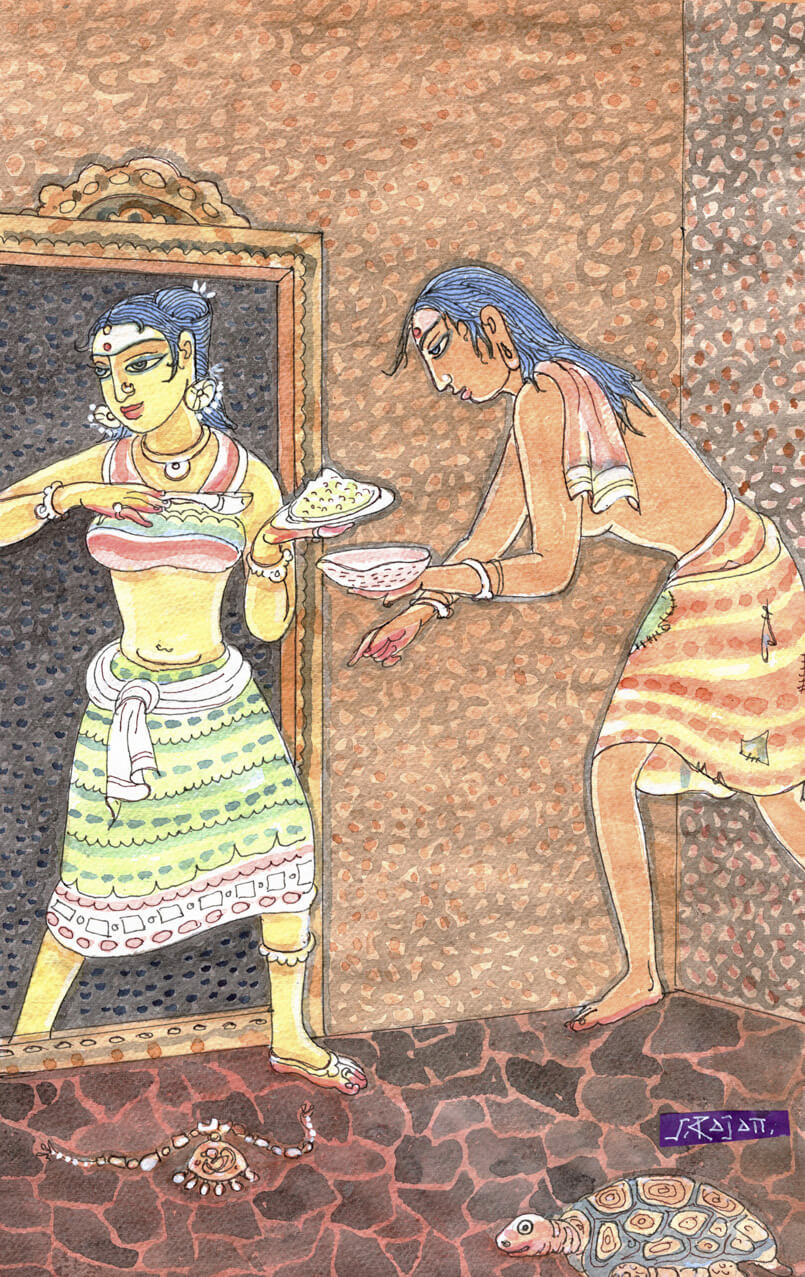Tirukural - Chapter 18
January 11, 2021Part I: On Virtue
Section I: Prologue
-->
Chapter 18: Avoidance of Covetousness

A beggar has come to the door of a woman who brings him a savory bowl of food. Though impoverished, he points out a valuable necklace she has dropped, showing he does not wish another's wealth to be his. A tortoise rests nearby, his limbs withdrawn into his shell, a metaphor for withdrawing the senses of desire.
You can access the entire text, in Tamil and English here:
Weaver's Wisdom
Verse 171
In the very attempt to wrongly gain another's wealth,
a man forfeits his family's future and his own faultlessness.
Verse 172
Those who deem injustice shameful never commit
guilt-yielding deeds driven by money-yielding desires.
Verse 173
Those who seek immortal bliss will not succumb
to immoral deeds that follow desire for fleeting delights.
Verse 174
With senses conquered and sight unclouded by depravity,
one will not wish for others' wealth, even in destitution.
Verse 175
What avails a man's subtle and comprehensive learning,
if, crazed by covetousness, he treats others insensibly?
Verse 176
Desiring grace and doing his duty, a man who desires wealth
but acquires it wrongly is destroyed nevertheless.
Verse 177
Do not seek the fortune that greed gathers,
for its fruit is bitter on the day of enjoyment.
Verse 178
To protect one's own prosperity from decline,
one must not crave the property held by others.
Verse 179
Just as wise men know the goodness of noncoveting,
so Fortune Herself knows their goodness and draws near.
Verse 180
There is a thoughtless desire for others' things that is destructive.
There is a mindful pride that, in refusing to covet, is triumphant.